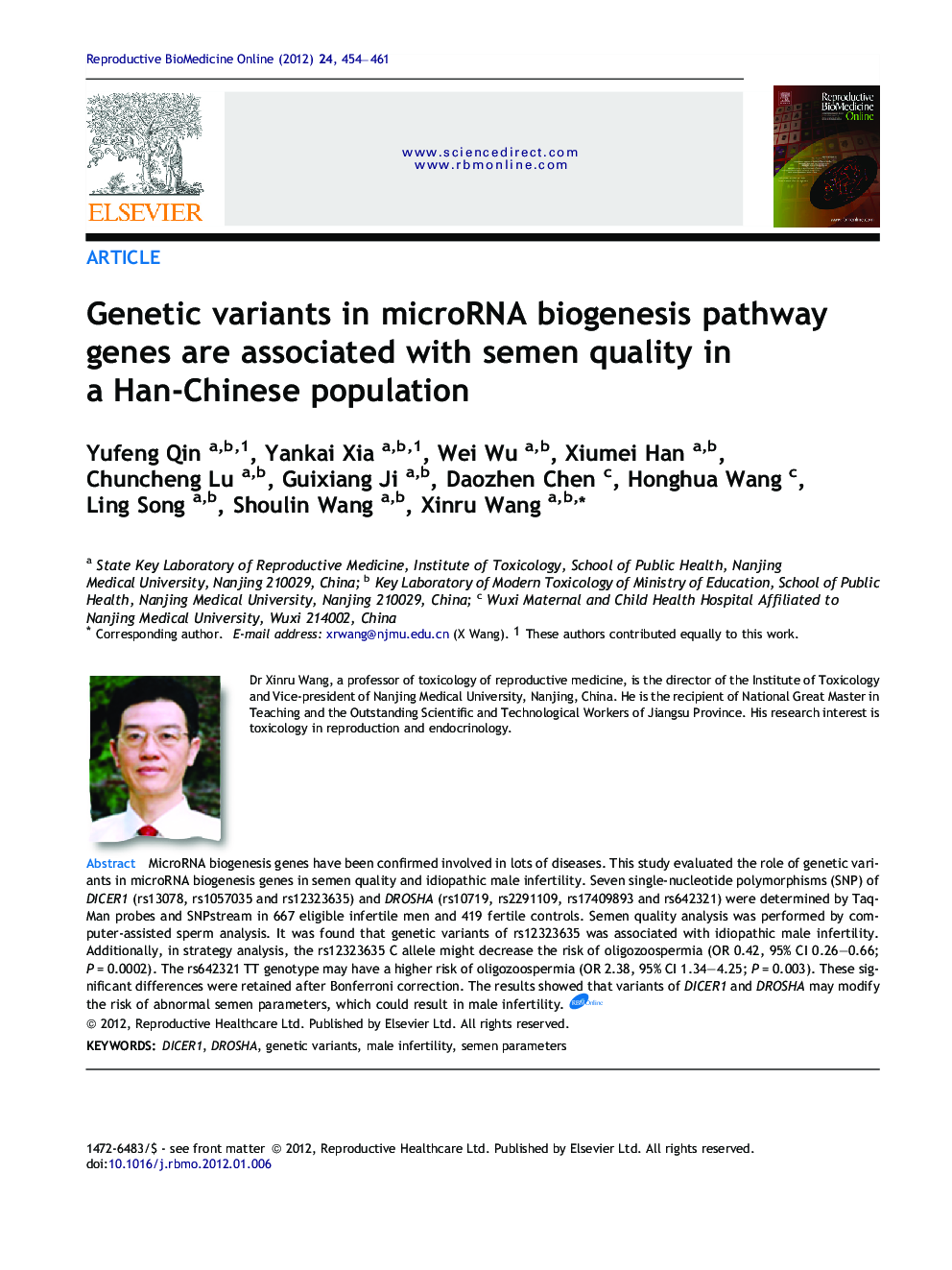| Article ID | Journal | Published Year | Pages | File Type |
|---|---|---|---|---|
| 3970701 | Reproductive BioMedicine Online | 2012 | 8 Pages |
MicroRNA biogenesis genes have been confirmed involved in lots of diseases. This study evaluated the role of genetic variants in microRNA biogenesis genes in semen quality and idiopathic male infertility. Seven single-nucleotide polymorphisms (SNP) of DICER1 (rs13078, rs1057035 and rs12323635) and DROSHA (rs10719, rs2291109, rs17409893 and rs642321) were determined by TaqMan probes and SNPstream in 667 eligible infertile men and 419 fertile controls. Semen quality analysis was performed by computer-assisted sperm analysis. It was found that genetic variants of rs12323635 was associated with idiopathic male infertility. Additionally, in strategy analysis, the rs12323635 C allele might decrease the risk of oligozoospermia (OR 0.42, 95% CI 0.26–0.66; P = 0.0002). The rs642321 TT genotype may have a higher risk of oligozoospermia (OR 2.38, 95% CI 1.34–4.25; P = 0.003). These significant differences were retained after Bonferroni correction. The results showed that variants of DICER1 and DROSHA may modify the risk of abnormal semen parameters, which could result in male infertility.MicroRNA have been confirmed involved in lots of diseases. To our knowledge, few studies have elucidated the role of genetic variants in microRNA biogenesis genes in semen quality and idiopathic male infertility, although microRNA is indispensable in normal spermatogenesis. In this original study, we evaluated the potential impact of the polymorphisms in microRNA biogenesis genes on the risk of abnormal semen quality based on 667 infertile patients and 419 controls, and provided the first evidence that polymorphism in rs12323635 in DICER1 may modify the risk of abnormal semen parameters, which could result in male infertility.
